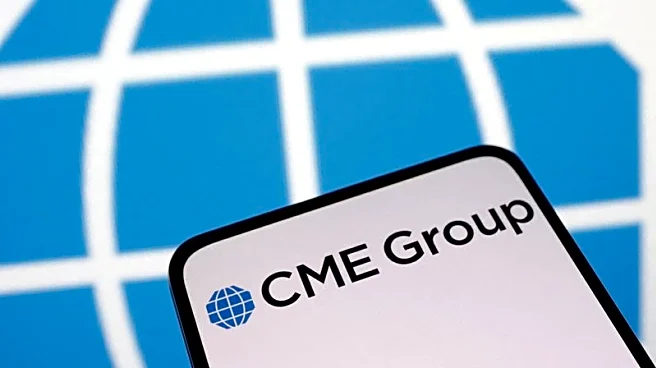What's Happening?
The Defense Advanced Research Projects Agency (DARPA) is addressing the isolation problem faced by quantum computers through a new contract initiative named Heterogeneous Architectures for Quantum (HARQ). Quantum computers, which typically operate as standalone systems, face challenges in communication due to reliance on quantum teleportation, which can introduce errors. DARPA aims to develop hardware and software that will enable different types of quantum computers, such as those using superconducting or photonic qubits, to communicate and work together. The agency is seeking proposals for the HARQ contract, which will include a 24-month phase one period with individual projects capped at $2 million. A subsequent nine-month scale-up period could be worth up to $650,000. Proposals are due by October 14, with awards expected by February 1, 2026.
Why It's Important?
The initiative by DARPA to solve the isolation problem in quantum computing is significant for the advancement of computing technology. Quantum computers have the potential to revolutionize industries by solving complex problems faster than traditional computers. However, their current limitations in communication and integration hinder their full potential. By enabling different quantum systems to work together, DARPA's project could enhance computing power and efficiency, benefiting sectors such as cybersecurity, pharmaceuticals, and financial modeling. The development of a 'quantum shared backbone' could lead to more robust and versatile quantum computing systems, potentially accelerating innovation and competitiveness in the U.S. technology sector.
What's Next?
Following the proposal submission deadline on October 14, DARPA will review submissions and announce awards by February 1, 2026. Companies involved in quantum computing and related technologies are likely to participate, aiming to contribute to the development of a unified quantum computing infrastructure. The success of this initiative could prompt further investments and collaborations in quantum technology, potentially leading to breakthroughs in computing capabilities. Stakeholders in technology and defense sectors will be closely monitoring the progress and outcomes of this contract.
Beyond the Headlines
The DARPA initiative may also have ethical and security implications. As quantum computing advances, it could impact encryption and data security, necessitating new standards and protocols to protect sensitive information. Additionally, the integration of diverse quantum systems raises questions about interoperability and standardization, which could influence future regulatory frameworks. The project underscores the need for collaboration between government agencies, private companies, and academic institutions to address these challenges and ensure responsible development of quantum technologies.











